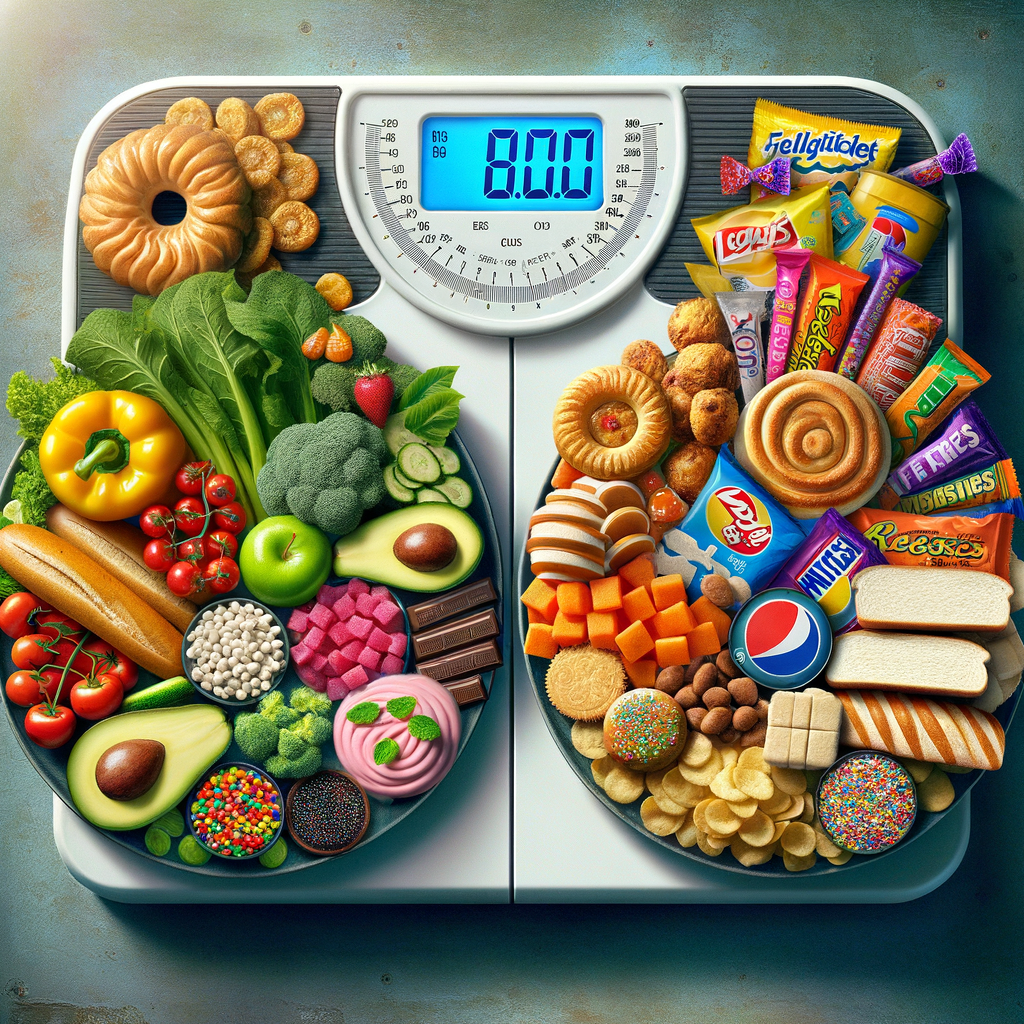Table of Contents
If you’ve been obsessing over calorie counts without seeing the results you want, here’s why: Not all calories are created equal. The outdated "calories in, calories out" model fails to account for how different foods affect your metabolism, hunger, and fat storage. Let me show you the real game-changer—hormones, specifically insulin.
When you consume refined carbs like white bread, pastries, or sugary drinks, your blood sugar spikes rapidly. To bring it back down, your body releases a surge of insulin—a hormone that helps shuttle glucose into your cells for energy or storage. However, this quick insulin response can lead to a crash in blood sugar levels afterward, leaving you feeling tired, irritable, and craving more sugar or carbs.
Over time, frequent spikes in insulin can promote fat storage, especially around the belly area, making it harder to lose weight despite calorie totals. This hormonal rollercoaster disrupts your body's natural ability to regulate hunger and energy, which is why focusing solely on calories can be misleading. Instead, managing the types of foods that influence insulin levels can help stabilize your metabolism and support sustainable weight loss.
The Calorie Myth: Same Number, Different Effects
Take two meals with 270 calories each:
- Meal A: A sugary pastry or processed snack
- Meal B: A fiber-rich, whole-food option like nuts or vegetables
While both technically contain the same calories, they trigger wildly different responses in your body:
- Meal A causes a rapid blood sugar spike, followed by an insulin surge and eventual crash—leaving you hungry, fatigued, and craving more sugar within hours.
- Meal B digests slowly, feeds your gut microbiome (which improves metabolism), and keeps blood sugar stable—so you stay full and energized longer.
The Real Problem: Insulin’s Domino Effect
When you eat refined carbs or sugar, here’s what happens:
- Blood sugar spikes → Insulin rises to shuttle glucose into cells.
- Insulin stays elevated for hours (even longer if you’re insulin resistant).
- High insulin = fat storage mode—your body cannot burn fat until insulin drops.
This is why you might feel hungry again shortly after a high-carb meal, even if you just ate "enough" calories. Your body isn’t responding to calories—it’s reacting to hormonal signals.
What to Focus on Instead of Calories
- Insulin Control
- Prioritize fiber, protein, and healthy fats to minimize blood sugar swings.
- Avoid refined carbs and sugars that trigger insulin spikes.
- Satiety Over Numbers
- Choose whole, unprocessed foods that keep you full naturally.
- If you’re not hungry, you’ll naturally eat fewer calories without counting them.
- Metabolic Flexibility
- The longer you keep insulin low, the more your body taps into fat for fuel.
- Pair smart food choices with movement (like walking after meals) to help clear glucose faster.
The Bottom Line
Yes, calories technically matter for weight loss, but hormones dictate whether those calories are burned or stored. Shift your focus from calorie counting to insulin management, and you’ll notice:
- Fewer cravings
- Steadier energy
- Easier fat loss
Stop stressing over numbers and start working with your body’s natural systems. The results will speak for themselves.
Understanding how different foods influence your hormones isn’t just a fancy health tip—it’s a practical approach to lasting weight management. Instead of obsessing over every calorie, aim to include more whole, minimally processed foods like vegetables, lean proteins, and healthy fats. These foods have a gentler effect on your blood sugar and insulin levels, helping you stay full longer and maintain stable energy throughout the day.
Another helpful strategy is balancing your meals to include a good mix of protein, fiber, and healthy fats. This combination slows down carbohydrate absorption, preventing those rapid insulin spikes and crashes. By paying attention to how your body responds—like noting when you feel hungry, full, or energized—you begin to develop a more intuitive and sustainable approach to eating.
Remember, the goal isn’t just weight loss; it’s creating a lifestyle that supports your overall wellbeing, hormone balance, and energy levels. When you view food as nourishment rather than calories to be counted or avoided, you’ll find it easier to make choices that serve your long-term health.
Instead of fixating on numbers, listen to your body and prioritize foods that help keep your hormones happy and your metabolism functioning smoothly.
If you require any assistance with this article, please do not hesitate to Contact Us
The content of this post is provided for informational purposes only. It is essential to consult with a qualified healthcare professional before making any decisions regarding your health or wellness. The author is not a licensed medical professional, and this information should not be considered medical advice.














